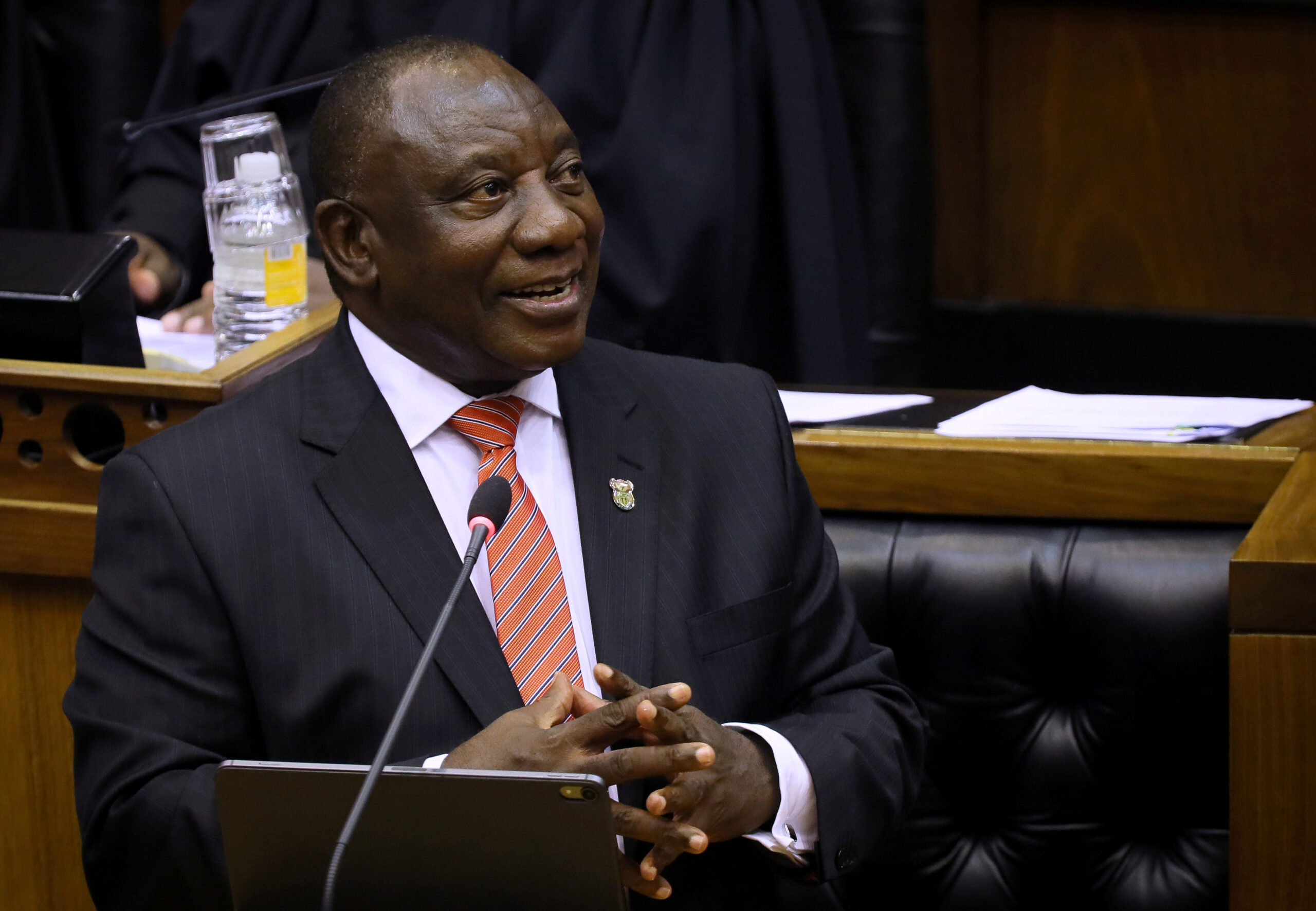
Ramaphosa lauds young entrepreneurs as ‘silver lining to the dark Covid-19 cloud’

President Cyril Ramaphosa has praised what he calls a “new breed of young entrepreneurs” for coming up with “home-grown solutions to the contemporary challenges we face” as the country continues to battle the economic shock of the Covid-19 pandemic.
South Africa was already in recession when the nationwide lockdown was instituted in late March, and South Africa’s already-high official unemployment rate is expected to surge as a result of the pandemic’s impact on businesses, while tax revenue is expected to plunge by around R300 billion. According to a new study, roughly three million people may have lost their jobs between February and April. The country’s youth unemployment is particularly acute.
In his weekly newsletter on Monday, Ramaphosa said even in South Africa’s “darkest hour,” the country has had to focus on green shoots of renewal, namely young entrepreneurs, which he said were the “silver lining to the dark Covid-19 cloud”.
“Our economic recovery cannot wait until the coronavirus pandemic is over. It needs to start now. One of the defining developments during the lockdown was how businesses in the townships and rural areas came into their own as people were not able to travel around much,” he said.
Ramaphosa named a number of young entrepreneurs who started business either just before or during the pandemic.
The president wrote about business in Langa township of Cape Town called Cloudy Deliveries, run by a group of young South Africans who run a bicycle delivery service from shops to the homes of residents in the township.
Ramaphosa said 28-year-old Xitsakiso Baloyi from Limpopo turned his pizza-making hobby into a business after the lockdown prevented people from eating out and he received queries from community members asking if he was selling his pizzas.
He also mentioned 32-year-old Ponani Shikweni from Alexandra township in Gauteng, who repurposed her linen manufacturing business to produce face masks. Shikweni employs 35 people and her business produces more than 1 000 masks a day to order, Ramaphosa said.
He also praised 18-year-old Judy Jay, a DJ and rising star from Sekhukhune, Limpopo, who arranged watch parties during the national lockdown. These watch parties got the attention of major local and international radio stations, he said.
Ramaphosa said government made progress in extending support to 1 000 youth-owned businesses since his State of the Nation Address in February and said this initiative would reach this target by August, despite the delays caused by the lockdown.
“It is not enough simply to urge individuals to take advantage of opportunities or to encourage an entrepreneurial spirit among our youth. We need instead to deliberately build township and rural economies,” Ramaphosa said.
Ramaphosa said many of the young people who will need assistance from government are entrepreneurs by circumstance rather than by choice and that many started businesses under difficult and even desperate situations, including the pandemic.
“Some have started small business ventures because of personal circumstances, like losing their jobs. Others who were previously unemployed have seized the opportunity provided by the pandemic to create their own income,” said Ramaphosa.
Ramaphosa said South Africa must create conditions “that will enable every individual to thrive in a society that supports, nurtures and helps them to succeed”.
“To meet the increasing demand for personal protective equipment, a number of small businesses have been established to manufacture masks, visors and face-shields to supply to businesses and communities,” Ramaphosa said.
The president said he considered it a crucial role of government to level the playing fields for small businesses entering fields and industries where concentration was high between a few large businesses.
“The concentration of markets and capital in large firms limits the potential of small businesses. Then there is spatial inequality, which concentrates poverty in particular parts of our cities, towns and villages,” Ramaphosa added.
Ramaphosa said through the Township Entrepreneurship Fund government aimed to support township businesses with skills development and access to markets and infrastructure.






